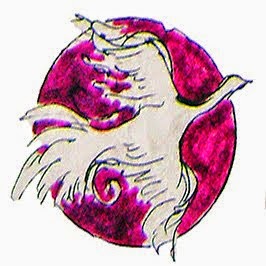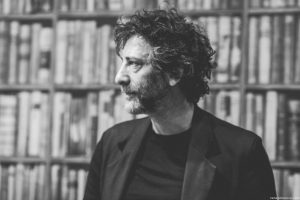Wide & Well
How Reading Well & Widely Equates to Better Writing & Being
Well, first off I think it's important to read even if you're just a regular ol' human being. Read widely and read well. If you find yourself sneakily thinking 'I've read everything' - that's just silly. Unless you're immortal (and I'm not necessarily saying you're not...), you probably haven't read EVERYTHING (yet). A good strategy for getting past readers-block is to look up who inspired your favorite authors and start there.
Another maneuver is to head to your local bookstore... walk in and take that deep breath. Smell all those lovely books? Good. Relax, take a second or two and chill... then get excited. Let your inner compass guide you to your regular isle haunts... trace your fingers lovingly along the spines of all those books you love... and then blink. Rub your eyes and look around. There's a whole bunch of other books there, too! (I know I know, 'who put all these here??) Pick up at least one new book from a new author.
Don't be snooty. Try something new.
Along these lines, you can also ask one of the book sellers which authors are their favorite and go from there.
My point is, you have to keep personally fresh and current with your reads. We people tend to find little corners of bookdom and burrow our own little den there. Doing your best to range beyond your literary foxhole will help grow you as a person, as well as expand your mind with new ideas and places. Whatever is in your mind and heart will eventually spill out onto your pages. So if you've been reading well and widely, that fresh stock of new ideas can both oil and fuel your write-abilty.
Examples!
Two examples of how reading well and widely can help you personally and as a writer for me begin with the Fossegrimmen. That's right, you heard me: Fossegrimmen. Now don't be fooled, brave reader - books are not the only thing you can read to garner ideas from. While recently browsing through one of my favorite time-killing sites, Imgur, I came across a post on Norse Mythology. If you've beta-read any of my upcoming novels or know me - then you'll already know just how much I adore northern European mythology. So it was a delight when I had begun reading the post and realized it was about creatures I had hitherto been unaware of.Idea central! I could hear my imagination and wonder whirring to life as I read article after article on old-world Norse creatures. One of these was the Fossegrimmen - which apparently even good 'ol Wikipedia didn't know about (which is saying something).
Here's the article on the Fossegrimmen:
Fossegrimmen

"Fossegrimmen, or just Grim (Foss is Norwegian for Waterfall) is a water-creature. He is a young, handsome man who sits naked under waterfalls. He plays the music of nature itself; the sound of the water, the wind in the trees, it all comes from his music. He is said to teach humans how to play if they secretly brought him a stolen piece of meat. Torgeir Augundsson (1801-1872), better known as Myllarguten, was a famous fiddle-player from Telemark, Norway who was so good it was rumored he had sold his soul in exchange of Fossegrimmen’s skills."
My other example is Neil Gaiman. More than half of you reading this are probably rolling your eyes; the rest just mentally said, "huh, who?" Neil Gaiman is an incredibly talented writer originally from England. He's written everything from graphic novels to movies to books (and probably more). After I discovered him (and realized just how many things of his I already loved without knowing), it was like opening up a whole new fantasy vein in a mine I was beginning to think I had exhausted.
When you keep reading, you're not only training and stretching your mind, you're helping grow yourself as a person. You can expose yourself to powerful, enchanting writers who can transform you with their own magical talent and creativity. Reading well and widely gets your own wonder whirring. It fuels you and oils you. You learn what good writing looks like by osmosis. You're adventuring into a vast realm of Imagination, where other sojourners have already gone before you. So pick up your laptops, pens and paper and prepare yourself: your Story is awaits.
- Ryan










